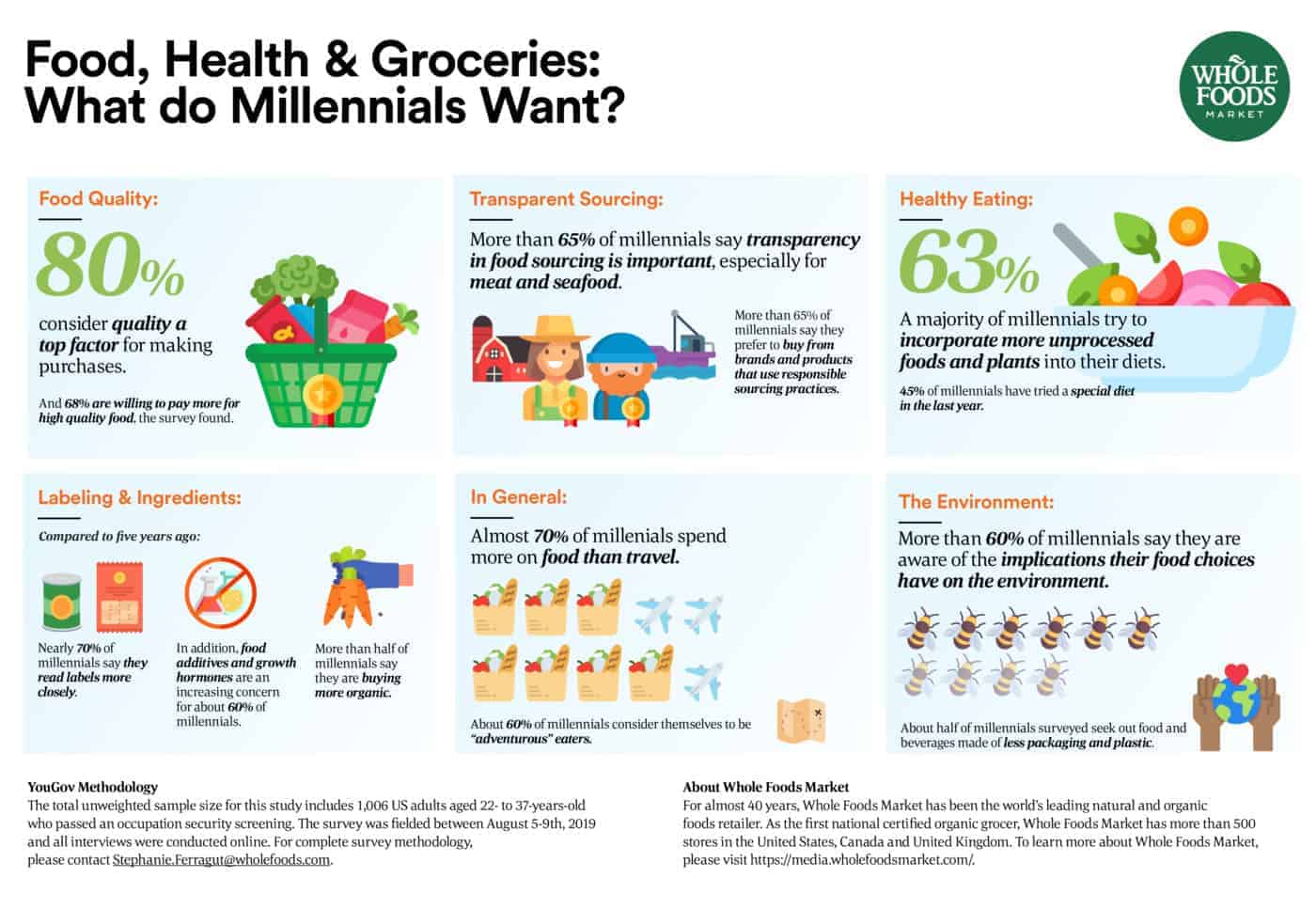Quality drives millennial food shopping preferences, and they are willing to pay more for it, according to a new Whole Foods Market survey. Eighty percent of millennials value quality when it comes to food shopping, and nearly 70 percent are willing to spend more money on high quality foods.
These findings are part of a new survey released recently that examines millennial food, health and grocery shopping preferences, which was conducted independently by YouGov on behalf of the retailer. The national online survey sampled 1,006 adults between the ages of 22 and 37 in the U.S.
Another trend that emerged is more informed purchasing decisions. A majority of millennials want to know where their food comes from and how it is sourced.
Transparency in food sourcing is important to more than 65 percent of millennials, particularly for fresh meat and seafood. More than half of millennials will pay more for products that have adopted animal welfare standards and prefer to buy those responsibly sourced.
Key Factors in Millennials’ Shopping Preferences
Food labeling and ingredient transparency are also key factors in millennials’ shopping preferences: Compared to five years ago, nearly 70 percent of millennials read labels more closely. More than 60 percent are more concerned about additives and growth hormones. Ultimately, half of millennials buy more organic products than they did five years ago.
“We’re always striving to better understand our customers’ passions when it comes to food,” said Sonya Gafsi Oblisk, Whole Foods Market’s Chief Marketing Officer. “Millennials don’t settle for just any food in their shopping carts, and neither do we. The stories of how food is produced and grown matter to them and to us. That is why we ban more than a hundred ingredients in the food we sell.”

Overall
Nearly seven in ten millennials spent more on food than on travel in the past year. A majority of millennials surveyed about their grocery shopping preferences considered themselves to be “adventurous” eaters when it comes to food, and more than 60 percent make an effort to cook new dishes.
Special Diets
More than six out of ten millennials try to eat healthy daily. Plant-based and unprocessed foods are becoming more popular with 63 percent of millennials trying to incorporate them into their diets.
Over the past year, nearly half of millennials have tried a special diet, such as Keto and dairy-free. Fifty-two percent restrict ingredients due to health reasons.
Related Article: Latino Millennials attracted to supermarkets that reflect their culture
More than half of millennials found that maintaining an alternative diet is often inconvenient so are willing to pay more for convenient, ready-made meals that are healthy and high quality.
Environment
More than 60 percent are aware of the implications their food choices have on the environment. About half actively seek out food and beverages made of less packaging and plastic.
Millennials’ Shopping Preferences Survey Methodology
The total unweighted sample size was 1,006 U.S. adults aged 22 – to 37-years-old who passed an occupation security screening. The online survey about millennials’ shopping preferences was conducted from August 5 to August 9, 2019. About half of the sample identified as parents.


